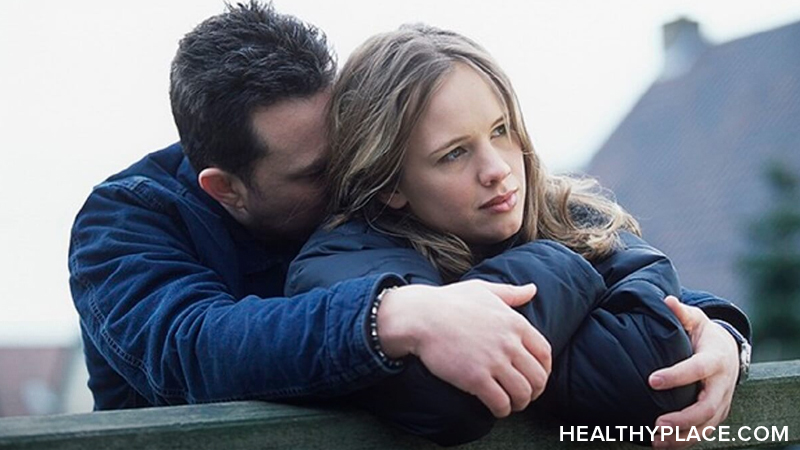Depression in Marriage? It Sucks! Causes, What to Do

Depression in marriage is no walk in the park. There is a misconception that people in relationships don't experience depression in the same way that single people do because they're less lonely, but there is no evidence to support this theory. Some studies indicate that married people (men in particular) have higher rates of depression due to increased pressures and isolation from broader society. So what can you do about depression in marriage? Here's how to identify the root of the problem and what to do about it.
Depression in Marriage: Why Is It Happening?
Dealing with depression in a marriage isn’t easy. Whether you, your spouse or both of you are affected by depression, it may take months or even years of depression treatment before you find a solution that works. Even then, depression is mostly managed rather than cured. Depression can feel hopeless, scary and frustrating. But, like any long-term illness, it is easier to navigate with a supportive ally by your side.
But what about when your marriage makes you depressed? And what if you’re already depressed and your relationship doesn’t provide the support you need? Understanding the interplay between marriage and depression is vital to identifying the cause of the problem so you and your spouse can overcome your differences and move on – whether together or alone.
Depression and Marriage: What Comes First?
What comes first: depression or marriage? It's not always easy to tell the difference between a depressing relationship or relationship problems that occur because one or more partners are depressed. It's important to differentiate clinical depression and situational depression here so that you know what you're dealing with.
Clinical depression is a medically diagnosed condition that often has no obvious cause. This kind of depression is a result of a complex set of biological, genetic and environmental factors, and it usually requires lifelong or long-term management.
Situational depression is not the same as clinical depression, although many of the characteristics are similar. Situational depression occurs when a person becomes sad and withdrawn following an upsetting or traumatic event – such as divorce, bereavement or relationship troubles. Although situational depression may require a short course of treatment to help the person feel better, it usually lifts over time.
So which is it? Here's the thing – it's not always easy to tell. A resounding body of research has shown that depression and marriage (in fact, all relationships) work together cyclically: depression affects the quality of relationships, and the relationships themselves can affect levels of depression. This is one of the reasons why 42% of U.S. adults have seen a counselor at some point in their lives.
Where to Get Help for Depression in Marriage
It may seem like the odds are stacked against marriages where depression is involved, but this isn’t always the case. It’s only when these issues are disguised by conflict and resentment that irreparable damage can occur, awareness and openness about these issues is the first step to resolving them.
If you or your spouse is experiencing symptoms of depression with no obvious cause, it's important to see your doctor and hold off making any major decisions about the relationship. Even moderate to severe depression can get better with treatment, and some people see an improvement in as little as six weeks after starting a course of counseling or antidepressants.
You can also find local therapists by getting a referral through your doctor, your county psychological association or county mental health agency.
See Also:
APA Reference
Smith, E.
(2022, January 4). Depression in Marriage? It Sucks! Causes, What to Do, HealthyPlace. Retrieved
on 2026, February 2 from https://www.healthyplace.com/depression/relationships/depression-in-marriage-it-sucks-causes-what-to-do


